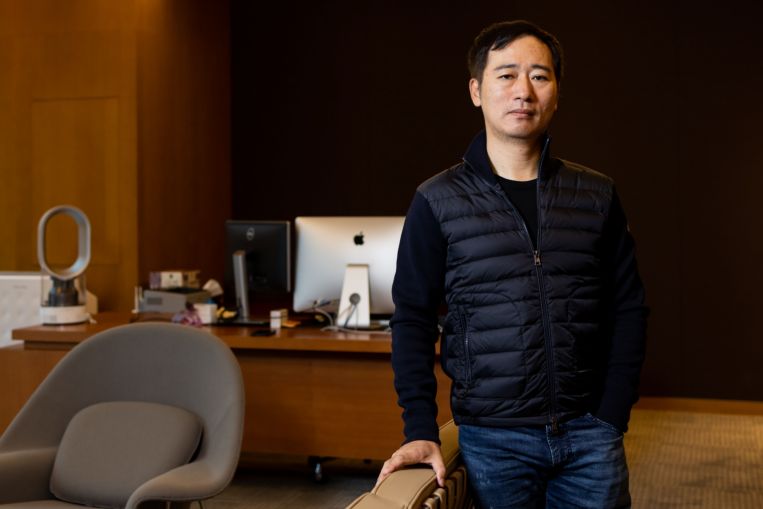(BLOOMBERG) – When a twenty-something Park Kwan Ho created the Legend Of Mir more than two decades ago, he was driven mostly by his love for online gaming.
Now at 48, the one-time game hobbyist is finally starting to taste the financial success that has eluded him since he founded Wemade in 2000, thanks to the release of Mir’s fourth iteration in August.
Based on blockchain technology, Mir 4 allows online players to convert in-game assets into tradeable crypto coins, while their avatars hunt and battle in the virtual world. While this genre is termed play-to-earn, many users also spend money to avoid hours of “grinding” to gain the resources needed to start earning crypto.
Mir, based on quests that players have to accomplish in a mythical world of monsters and warriors, has drawn millions of users, who log in from countries from Belgium to Brazil and the Philippines. Shares of Wemade have surged almost 620 per cent this year, giving the company a market value of about US$3.9 billion (S$5.3 billion). Mr Park is among a growing crop of developers seeking to reshape an industry that is seeing massive wealth creation as the coronavirus pandemic fuels demand for online entertainment.
His 45 per cent stake in Wemade is worth about US$1.7 billion. But almost 70 per cent of his shares are pledged as collateral. This means he is not yet part of South Korea’s pantheon of self-made gaming billionaires such as Krafton’s Mr Chang Byung-gyu and Netmarble’s Mr Bang Jun-hyuk.
Of the 14.8 million shares Mr Park holds, 10.3 million were pledged between 2013 and 2020 with Industrial Bank of Korea, NongHyup Bank, IBK Securities and Samsung Securities.
As a business major in college in the mid-1990s, Mr Park used to develop computer games as a member of a programming club.
“I was pretty good at programming and coding, so I thought maybe it’d be fun to make a career of it,” he said. “Initially, I didn’t have any plan to start my own company.” When Wemade released the second version of Mir in China in the early 2000s, it managed to sign up 500 million players at one point. But in subsequent years, the company stumbled as it got embroiled in lengthy legal battles overseas to stop pirated copies.
With the emergence of the metaverse and blockchain, the digital-ledger technology that makes Bitcoin work, he is seeking to tap into growing demand for play-to-earn games. “It was wishful thinking at first to create a virtual world where people are allowed to make money while playing a game,” he said. “That’s now possible with the development of blockchain technology, and the recent surge in share prices is reflective of our vision.”
His next step was a foray into the world of cryptocurrencies. In 2018, he established blockchain unit Wemade Tree, and the company listed its own coin Wemix in 2020.
Wemade also invested 80 billion won (S$91.3 million) in Vidente, the single-biggest shareholder of crypto exchange Bithumb. In Mir’s Asian fantasy-based virtual world, players can trade 100,000 units of Darksteel into one Draco token, which then can be converted into Wemix. The value of Wemix rose to as high as 3,587 won on Sept 19, up 426 per cent from the settlement on Oct 28 when the coin was listed, according to Bithumb. “The business started off as a gaming company, but now our dream is to expand the Wemix ecosystem and the virtual world that’s built upon the network,” he said.
After Mir 4 was released in South Korea in November last year, Wemade’s revenue jumped 147 per cent to a record high in the first quarter of this year from a year earlier, according to an earnings statement. The company, which is based in Pangyo near Seoul, rolled out Mir 4 to 170 countries in August.
Wemade has increased its servers almost fifteenfold to 163 in less than two months to keep up with demand, while preparing to launch Mir 4 in China.
China’s regulators are reviewing new games to determine whether they meet stricter criteria around content and protections for kids. Beijing has also banned all cryptocurrency transactions.
“I am very interested in knowing how China’s crackdown will unfold and how different countries will implement regulations on the blockchain sector,” Mr Park said. “There’s so much to worry about and be prepared for because I learnt over the years that even a small risk can take down a company.”













































